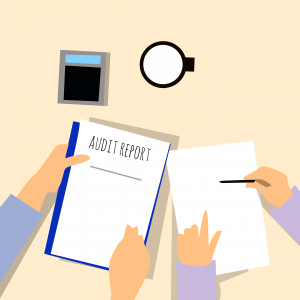An accounting compilation is composed of financial statements that are prepared by a company’s outside accountant. The accountant takes the data provided by a business and creates financial statements, which usually does not include auditing or any other extra services. A compilation report will then also be included, stating the fact that the accountant has not offered any opinion or assurances, and has not reviewed the documents.
The main benefit of this is that a  business can get properly formatted financial statements at a lower cost than what reviewed statements would cost.
business can get properly formatted financial statements at a lower cost than what reviewed statements would cost.
If cost is not your main issue, and you’d prefer your documents to be examined more closely, you might consider asking for an audit or a review.
Review
A financial statement review is a less detailed look at your paperwork, for companies that are fairly confident in them but would like a second opinion at a higher level. This essentially gives a business some assurance that no modifications are necessary to conform with financial reporting frameworks, such as GAAP or IFRS.
This is a good cost-saving option for companies whose creditors and lenders only require this level of precision, rather than a full-on audit.
This service may include things like:
- Inquiries about accounting practices / principles used
- Procedures for recording / collecting financial info
- Various actions taken at top level meetings
- Responsibilities of management for internal control and detecting fraud
Audit
An audit will be the most costly option but will also give the highest level of accuracy and assurance of your financial statements. Some investors and lenders do require this.
The auditor will ensure the statements are free of misstatements, and if any were found, whether they were due to error or fraud. After examining, testing, tracing, and comparing various items, the auditor will issue an opinion of whether they see the statements as accurate or not.
This service usually includes things like:
- Outside / third party confirmation
- Testing of select transactions using supporting documents
- Physical inspections
- Thorough evaluation of the company’s internal control system
The auditor can also suggest points of improvement if they see deficiencies or weakness in the internal system of the company. As well, if the statements seem to be very inaccurate, the auditor will state this which could have a negative effect on your business for investors and lenders.

